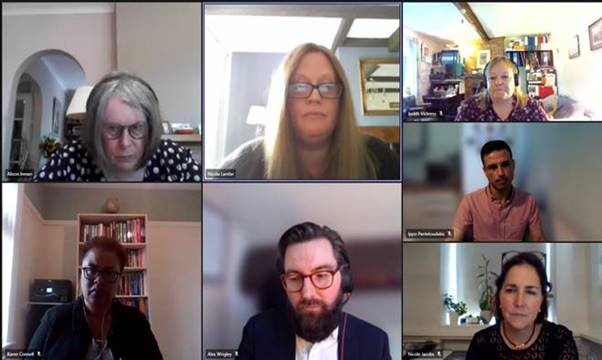The Chair, Alison Inman, and panellists highlighted a wide range of issues including the impact of the pandemic, male victims, and the role local community-based organisations play.
Many housing providers including the Guinness Partnership are now training frontline staff with support from domestic abuse organisations like the Domestic Abuse Housing Alliance.
People like gas engineers, repair staff or housing officers are often the first and only witnesses to what is going on behind closed doors and can play a critical role when it comes to domestic abuse. And this saves lives.
Housing has a key role to play when it comes to providing a co-ordinated community response to domestic abuse and this was very clear during the height of the Covid-19 national lockdowns.
The Domestic Abuse Commissioner, Nicole Jacobs, stressed the importance of nationwide partnerships to ensure housing services are front and centre in improving the systematic response to domestic abuse.
A provision in the Domestic Abuse Act which laid a statutory duty for local authorities to provide accommodation-based services to domestic abuse survivors in their local area was also discussed during the webinar.
The Act has laid strong foundations in improving housing provisions and services to domestic abuse victims, but the Commissioner also said she was concerned about the ongoing lack of protection for vulnerable migrant women with no recourse to public funds.
Ms Jacobs said that she was committed to improving access to community-based services including housing for these women.
For more information please check: CIH’s Make a Stand pledge, DAHA accreditation, and Guinness’s domestic abuse toolkit.”
The panellists included:
- Alison Inman (Chair), Former CIH President
- Nicole Jacobs, Domestic Abuse Commissioner
- Judith Vickress, National Development Manager, DAHA
- Alex Wrigley, Tenancy Enforcement Manager, The Guinness Partnership
- Ippo Panteloudakis, Head of Services, Respect
- Nicola Lambe, Chief Executive, Ashiana Sheffield


